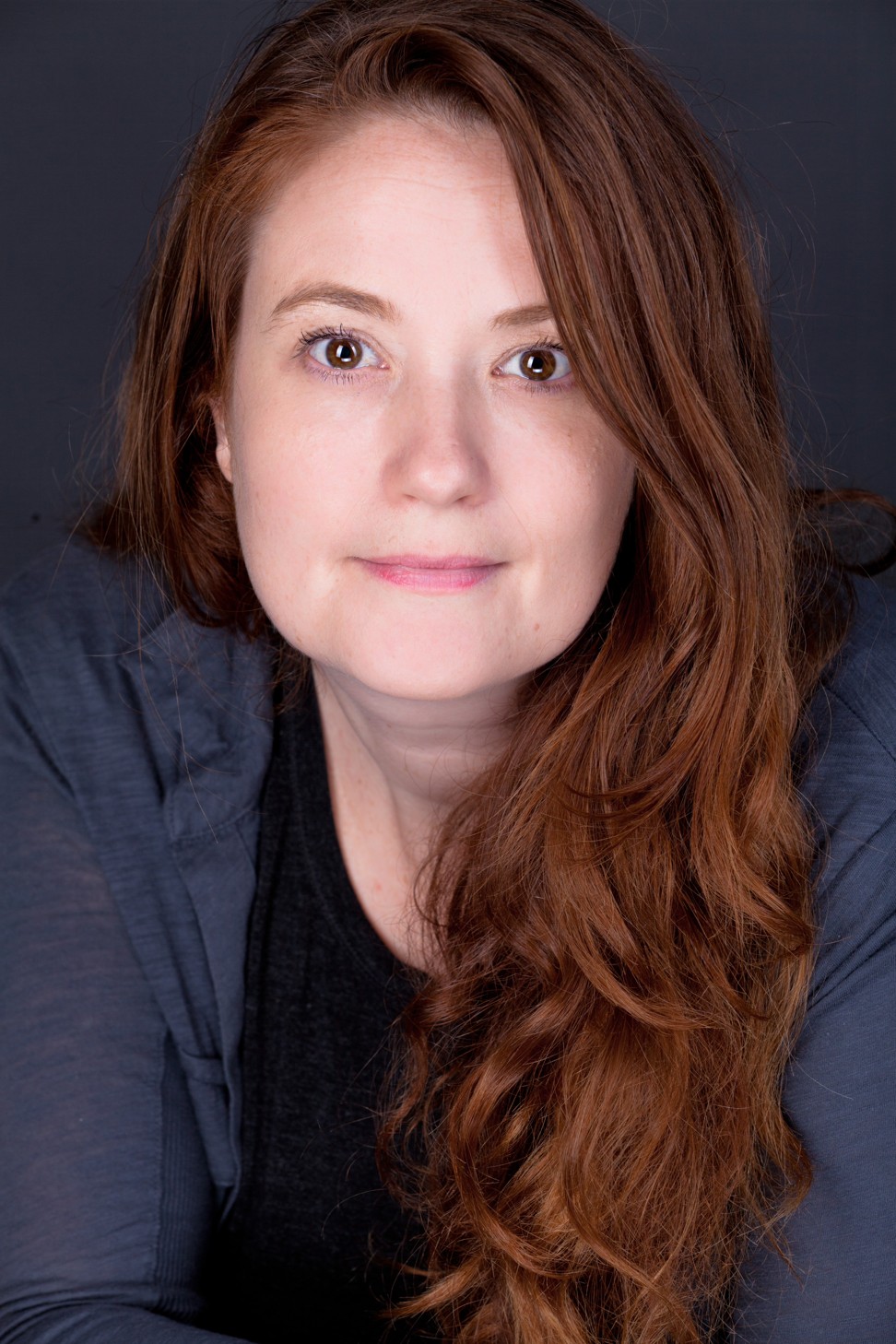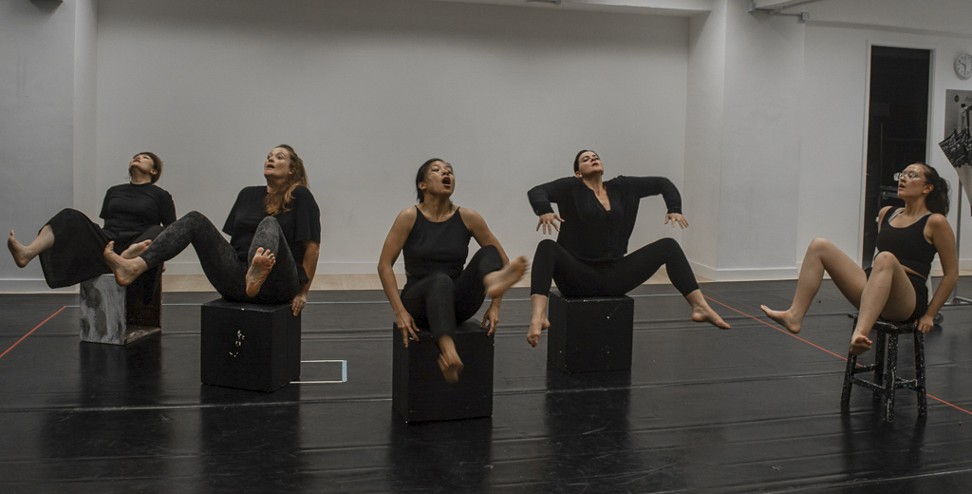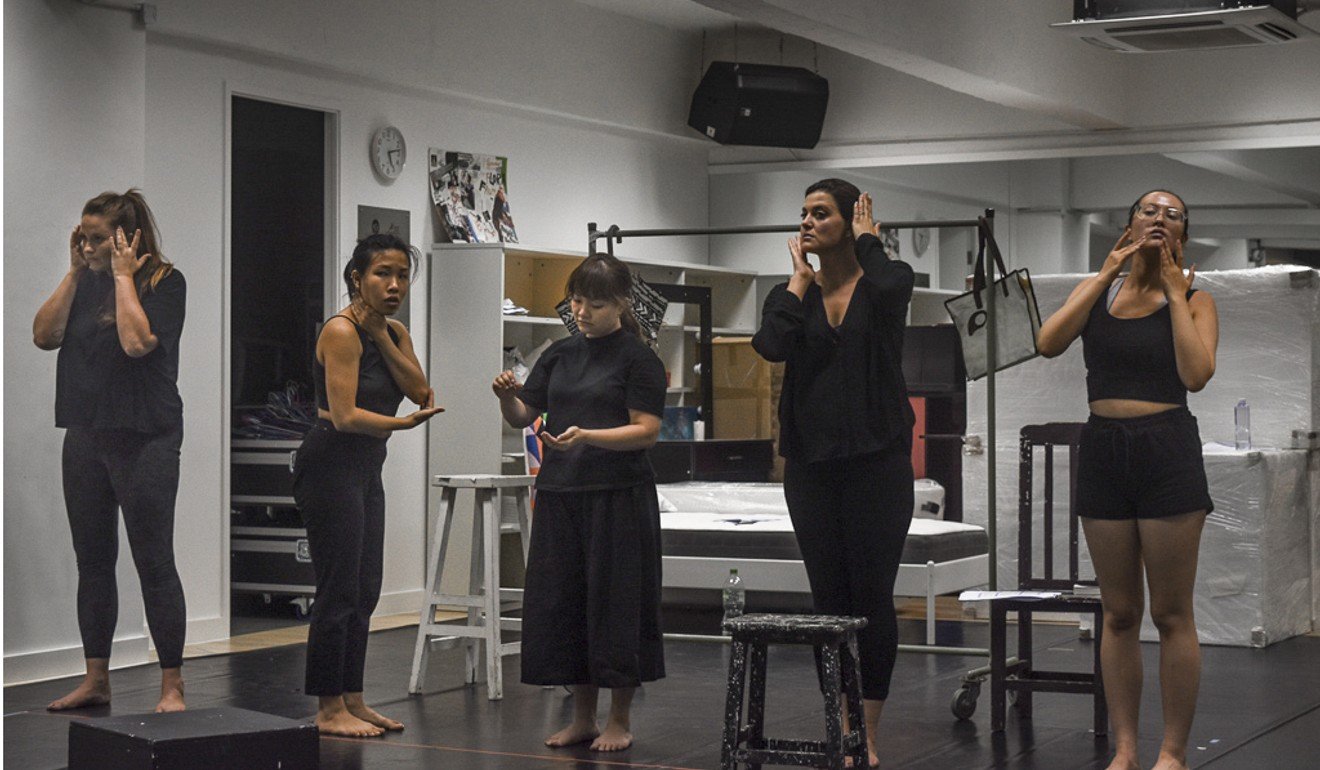
A new theatrical production set in an abortion clinic, The Waiting Room, explores the stories of real individuals and their heartbreaking struggles over a choice nobody ever dreams of having to make.
Jessica De Borja, 33, the play’s director, producer and writer, joined forces with co-producer and performer Davina Lee Carrete, 40, to found A Common Collective to produce works that explore social issues.
Given the shouting matches taking place in the United States and echoing around the globe over a woman’s right to govern her own body, the production’s subject matter has become a topical talking point on this issue.
In their research, the pair noted the gulf between the abortion experience in Hong Kong and in Britain. Women in Hong Kong face added layers of stress as they wade through a longer process to terminate a pregnancy than they do in Britain. And it is shrouded in secrecy. De Borja notes that those grappling with their decision and its aftermath are less likely to reach out for support “because mental health is still such a stigma in Hong Kong and Asian cultures”.
The play features five actresses who explore abortion and other topics related to female body experiences. While much of the writing stems from De Borja, it also includes input from the cast who wrote their own monologues and combines research the co-producers conducted, including interviews with women in the city who have had an abortion. Some of those insights were incorporated into the script verbatim.

Another Hong Kong peculiarity is that an abortion is not performed at a clinic dedicated to the procedure, but at one that deals with multiple female medical issues, from sexual health to pregnancy.
“It’s bizarre to have it all in once place,” says Lee Carrete, especially if you’re in the waiting room, “looking at a pregnant woman when you are going in there for an abortion … We listened to a couple of people who said the care was not there.”
De Borja says the detailed information you would get from Western doctors overseas is lacking. Many women felt unprepared for the emotional and psychological ramifications they faced after the procedure, even when they had felt sure of their decision.

“In Hong Kong, they don’t tell you about grief counselling or even mention the word ‘grief’,” De Borja says. She learned, too, that everyone deals with a termination differently.
The play coincides with an epic legal war on abortion that continues in the US, resulting in several states rolling back reproductive rights. Alabama made headlines recently for passing a draconian anti-abortion law that criminalises the procedure, a near-total ban that prohibits termination at any stage of pregnancy, with no exceptions for rape or incest.
In Hong Kong, the procedure is legal but within certain requirements. The Offences Against the Person Ordinance mandates two registered doctors must sign off on the procedure, either on the grounds the mother’s life or physical or mental health is at risk, or there is a high risk the newborn would suffer a serious disability because of physical or mental abnormalities. According to government statistics, there are about 10,000 terminations in the city annually.
“That one law – talking to someone first, then again to a second doctor … that puts women off,” says De Borja.
Lee Carrete has a personal connection to the play’s subject. Her abortion experience in 2007 in the UK was starkly different. For instance, her access to service was less stressful. “You just make an appointment,” she says.
Her relationship with the would-be father was volatile, so she felt conditions were not viable for raising a child. “I don’t regret it but it’s just a horrible thing you have to go through,” says the British native, who gets emotional recounting the episode.

Her family knew of her decision and had arranged to drive her home from the abortion clinic in London afterwards. But they were late, and she was left to wait in front of an angry pro-life crowd. “There were a lot of protesters outside – I was like, ‘Where are you?!’” she recalls.
The episode affected her mental health. She had undergone a machine vacuum procedure, which became a traumatic memory. She developed an infection days later so was rushed to hospital for another procedure.
Lee Carrete later felt comfortable talking with friends of both sexes about her anxieties, and sought professional help from a counsellor available at the university where she was studying. All of it, from the procedure to post-abortion care, was funded by the National Health Service. “I was very lucky,” she says.
We really hope that women will just talk to someone [when they are facing difficult decisions], or recognise we are all in this together. Why do we have to keep it silent? – Jessica De Borja, writer and director of The Waiting Room
Having learned about the Hong Kong abortion experience affected Lee Carrete’s impression of the city. “It’s 2019, and Hong Kong is meant to be a city of the world like London and New York,” she says, adding that in this way it lags behind.
The Waiting Room also explores the private reproductive health traumas women go through, including minor ones such as period leaks in public.
One of the play’s goals is to shift the narrative, taking it out of the shadows to have a de-stigmatising effect, but also to lighten the subject. The pair experienced all this during the research process, including a night when the cast and confidential contributors gathered at Lee Carrete’s home to bond – and to laugh. “It doesn’t have to be so serious … one thing so important to me was to have fun, comedic moments,” says Lee Carrete.
“We really hope that women will just talk to someone [when they are facing difficult decisions], or recognise we are all in this together,” says De Borja. “Why do we have to keep it silent?”
The Waiting Room The Hive Studios, 8/F, Cheung Hing Industrial Building, 12P Smithfield, Kennedy Town, tel: 5665 5023, acommoncollective.org. June 7 to 9. HK$220






